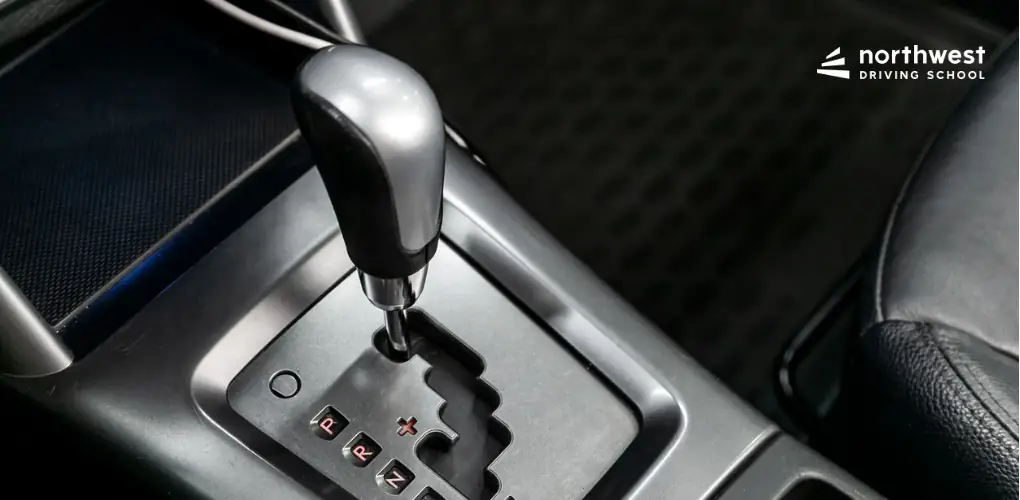- Driving School
Are Automatic Cars Better For Nervous Drivers?

Learning to drive can already be a stressful experience, and one of the aspects that many learner drivers find intimidating is the use of a manual transmission.
Stalling, misjudging gear changes or simply forgetting to switch on the handbrake can all add to this sense of stress.
But what if you’re already a nervous driver? How do you cope with the pressure of being behind the wheel?
One possible solution is to invest in an automatic vehicle. Automatics have levers, pedals, and steering wheels that are just like those of a manual car but with one major difference – you don’t need to operate a clutch when changing gears.
Not worrying about gear changes means that drivers can focus on the road without being distracted or overwhelmed by the process of driving.
In this blog, we’ll explore how automatic cars can help nervous drivers and what other steps you can take to reduce your sense of stress when driving.
Read More: How To Deal With Driving Anxiety And Test Day Nerves
Table of Contents
The Benefits Of An Automatic Car
Automatic cars use a computerized system to select the right gear for the situation. This means drivers don’t have to worry about manually changing gears using a clutch, which helps reduce distractions.
Using an automatic essentially removes the gear-changing process from your driving routine, giving you one less thing to think about. This makes it easier for drivers to focus on the road and allows them to remain calm and relaxed when driving.
There are also other benefits associated with driving an automatic car, including:
- Easier to start and stop in traffic – Automatic cars can start and stop more smoothly than manual cars, which makes them a great choice for navigating busy city streets.
- Easy to maneuver around tight turns and drive on hills – Automatic cars have better traction and don’t require the driver to shift gears when going up hills or turning corners.
- Lower maintenance costs – Automatic cars require less maintenance than manual vehicles, as they don’t have as many moving parts that need to be regularly adjusted or replaced.
- More fuel efficient – The computerized systems in automatic cars help to optimize the engine’s performance, which makes them more fuel efficient than manual cars.
Driving an automatic car is, in a basic sense, easier than driving a manual car. By removing the need for gear-shifting and allowing cars to switch gears automatically, drivers can focus their attention on the road without having to worry about multitasking between several steps of shifting. This makes automatics a great choice for newer drivers or anyone looking for a smoother, more relaxed driving experience.
Why Automatic Cars Suit Nervous Drivers
If you are nervous about the prospect of learning to drive, or if you have recently had lessons and are still worried about driving on the road, an automatic car may be your best option. Automatics provide a more relaxed experience and can help to make learning to drive easier.
By removing the need for gear-shifting and allowing cars to switch gears automatically, drivers can focus on the road rather than dealing with multiple pedals and gears. This helps create a calmer atmosphere inside the car, meaning drivers feel less stressed while driving.
There are also no significant drawbacks to choosing an automatic car. They are actually generally more fuel efficient than manual cars, meaning drivers save money on petrol costs in the long run.
Can You Learn To Drive An Automatic Car?
Yes, absolutely, you can learn to drive in an automatic car. In fact, for some people, it can be even easier than learning to drive a manual car. With the removed stress of mastering gear-shifting and clutch control, learners can focus their attention on other important aspects of driving, such as observation and road positioning.
Here at Northwest Driving School, we have a fleet of both automatic and manual cars, so you can choose the car that best suits your level of experience. Combined with our expert instructors, we’ll ensure you learn to drive quickly and safely.
What Else Can You Do To Reduce Nervousness While Driving?
In addition to learning in and driving an automatic car, there are other techniques you can use to become a more confident driver, including:
- Practicing as much as possible – The more you practice, the better driver you’ll become. Try to take regular drives in different conditions and environments to build up your experience and confidence.
- Routines – Establishing a pre-drive routine can help reduce anxiety while driving. Ensure you do everything in the same order before entering the car – check the mirrors, adjust your seat, etc.
- Taking a passenger – Having an experienced driver with you in the car can be invaluable – they can help provide guidance, point out hazards, and offer encouragement when needed.
- Driving courses – Consider taking an advanced driving course to help build your skills and confidence. This is especially beneficial if you plan to drive on motorways or in unfamiliar areas.
- Practice defensive driving – Defensive driving is about anticipating potential hazards before they happen and reacting appropriately. Pay attention to other drivers’ movements, be aware of cyclists and pedestrians, and always look ahead for potential dangers.
These tips, coupled with the ease of an automatic car, can help even the most nervous driver learn to feel in control, be more confident, and drive safely on the roads. Remember, even experienced drivers can benefit from brushing up on their defensive driving skills every now and then. If you feel the need for a refresher course or just want to discuss your learning needs with us, contact Northwest Driving School today!

